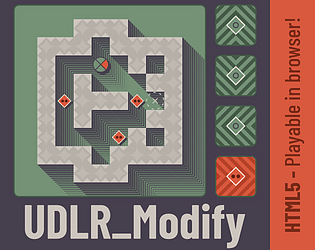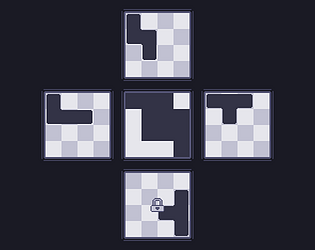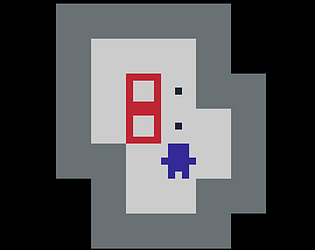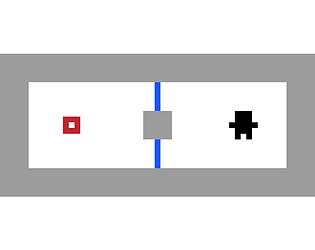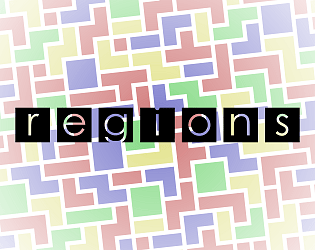I like this a lot!
Two-Headed Deer
Creator of
Recent community posts
How do I detect which device the player has most recently used?
For context, I am making a singleplayer game, and I am trying to display a button prompt. I would like to display only the buttons that are relevant to the most recently used input device. I think I can filter the inputs using DeviceInput.deviceName, but first I need the name of the input device most recently used, and I'm not sure how to get that.
Fun! The dead-end rule felt a little inconsequential most of the time, but I can't think of any other good board-ending rules to replace it with. Some of the puzzles could be a little more tightly designed - the larger ones towards the end I felt like I was stumbling through with intuition rather than deducing a solution. I think there's good foundation here for introducing new mechanics and making a larger game.
I really like the way this gives immediate feedback to the designer. It might not be the best way to actually design a well-crafted puzzle, but you can just adjust the variables around bit by bit and instantly know if you've destroyed the intended path through the puzzle or opened up a bunch of unintended ones.
I've never been able to find the video of the talk since I watched it originally, but I remember Marc Ten Bosch (Meigakure dev) talking a bit about state spaces and how he tries to design puzzles that create large state spaces with a short goal path, the notion being that these puzzles are easy to solve, but only if you know the solution. This kind of visualization would be pretty useful if that's your design philosophy, especially if it was integrated right into your dev tools (assuming your game lends itself well to being analyzed as a state space - grid based movement and all that).
There's a fun game in here, but I couldn't quite find it. I'm not much for roguelikes, so take this all with a grain of salt.
I'm pretty consistently in situations where it feels less like I didn't make the best of a bad situation and more like I just had a bad situation. Sometimes I plan poorly, or draw some bad cards, and I learn and adjust how I play, which is good. Other times my run just simply doesn't provide any cards to sate hunger and I starve to an unpreventable death. I'd be interested in playing a version of this game with the hunger mechanic removed.


